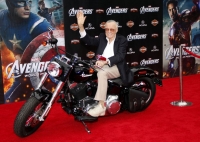
Millennial Engagement Articles
Engaging millennials is more important now than ever for businesses and Human Resources departments. Generation Y is changing the face of work in many industries and businesses large and small need to adapt to their needs or risk losing out on burgeoning talent.
The majority of millennial workers find it difficult to form friendships in the workplace, new research suggests. According to a survey of 2,016 people carried out by graduate jobs board Milkround.com, more than half (65 per cent) of those aged 25 to 34 struggle to make friends at work compared to less than a quarter (23 per cent) of their baby boomer colleagues.
In a word, millennials are the first digital natives, as emphasized in the Goldman Sachs research. In this light, being connected might be the third most important thing for them, apart from making a positive change and having enough freedom.
According to an article from Forbes, as many as 74 percent of millennial workers plan to quit their jobs sometime within the next three years. And that same article says that only 28 percent of workers plan to keep their current job for longer than five years. The days when employees would spend decades of their lives with one company prior to retirement are long gone.
Millennials often get criticized for having an ‘entitled’ attitude, and this appears to hold true in the workplace as well. Recent reports reflect that younger workers do appear to demand more than their older counterparts. Wilson says that employers would be wise not to give up hope when it comes to engaging and retaining younger workers.
Millennials at work and many others all have an idea of what work burnout is but what are the tell-tale signs you or someone else is experiencing it?
The debate over the employee benefits and compensation ramifications of paying versus not paying your interns is still raging. Unlike many other debates currently being argued in various spheres in the United States however, it’s fairly easy to look across the battlefield and see the perspective of the other side.
‘Why don’t you just stay in one place for a while, and work up the company ladder like I did?” Every millennial has heard this type of comment from a member of an ahem older generation — over and over again from family members during the holidays, from our mentors, from our parents.
Stereotypes about millennials abound. Read the popular press or reports of employee surveys and you will come away with the view that millennials differ substantially from their older counterparts—and even previous generations of younger workers—in what they value and expect from work.
Successful organizations view their multigenerational workforce not as a bane, but as a blessing. It is imperative, not just for individual organizations but for the entire working world, to embrace the benefits of an age-diverse workforce.
Imagine if you had the opportunity to voice your opinion about your workplace on a regular basis. You would enhance employee engagement and be able to provide useful suggestions for better working environments, your workload, employee communications initiatives, even company benefits!
Despite underinvestment, L&D is more important than ever.
In 1977, Dr. Bill Hettler co-founded the National Wellness Institute, Inc. (NWI), and shared his “Six Dimensions of Wellness Model” with the masses.
More companies than ever before are trying to find the best talent they can before that talent even goes to college. It’s an effort to get a leg up in an increasingly competitive recruitment and retention battlefield for many industries.
Every employee values workplace perks but does its importance outweigh being paid more?
To inspire constant improvement, a Pittsburgh children’s hospital urged its employees to act like they ‘own the zone.’ Then it made sure to act on their ideas.
Generation Z doesn’t remember a time without cellphones or Google because they weren’t born yet.
These writers, editors and communicators got us started in our careers. Let’s raise a toast to them on this national celebration of gratitude.
The icon of Marvel Comics and the co-creator of popular characters such as Iron Man, Spider-Man and Daredevil has died at age 95. Here’s what writers can derive from his legacy.
Why is branding and content important? If you think of your ‘brand’ as your reputation, your ‘brand’ as an employer should be positive. A positive brand means a positive reputation, and your employee communications tactics will work better, and you’ll get better job candidates.
Welcome back to Talk Nerdy To Me, 15Five’s academic blog series where we get nerdy, talk to the world’s best thinkers, and break down the latest academic research that you can apply to your workplace.






















